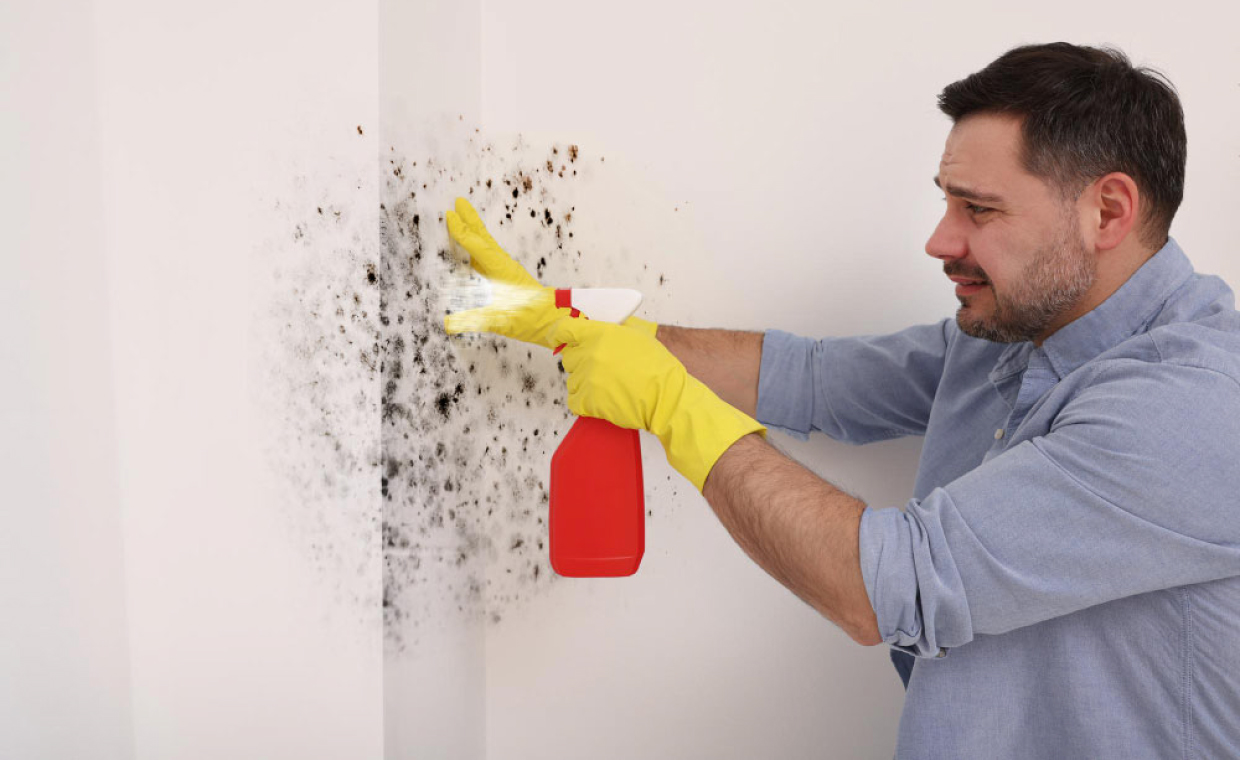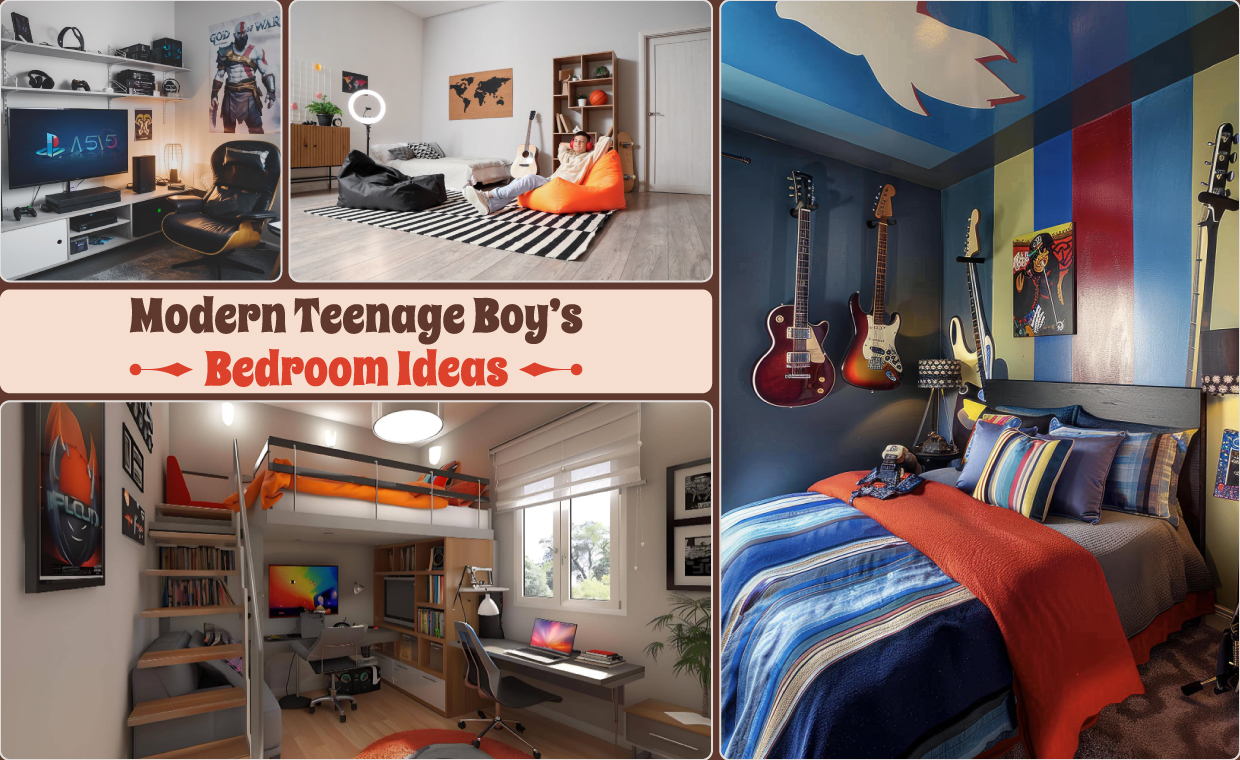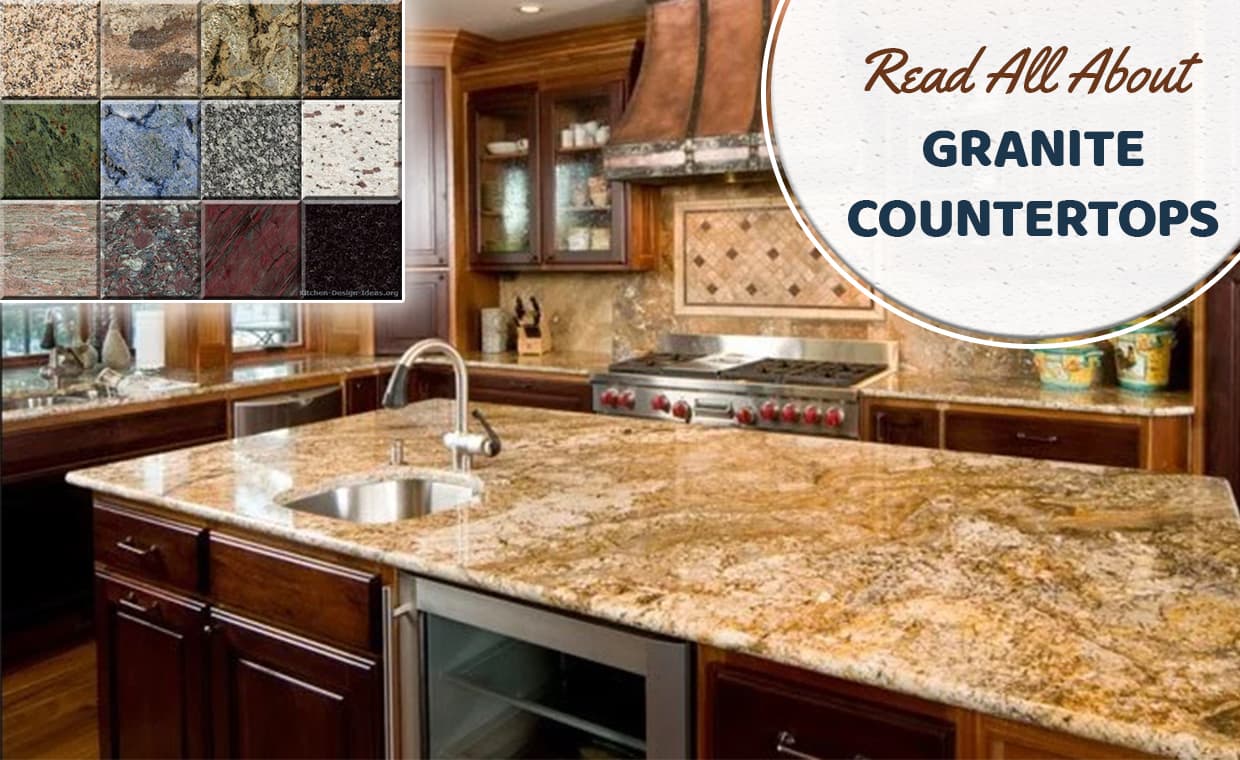
Countertops are the soul of a functional area because it house’s most of the activities as well as you can place lots of items on the countertops. A countertop should be durable, strong enough, maintenance-friendly, easy to access, and should add beauty to the room ambiance regardless it is about kitchen or your rooftop garden arena. However, countertops are generally used in kitchen, hence kitchen and countertops are mostly used per each other.
Several assorted materials are available for kitchen countertops like concrete, granite, marble, quartz, stainless steel, Corian artificial stone, etc. It can be confusing for anyone to make the right choice. Some of them are costly and require skills and experience to install while some are economical. While you are buying new kitchen countertop, you should always remember that countertop should always match with cabinets and should be in harmony with kitchen as a whole. The proper combination of these two will bring an attractive and unique look to your kitchen for a long time .In this blog, we are going to discuss about granite countertops in detail.
Why Granite for Kitchen Countertop?
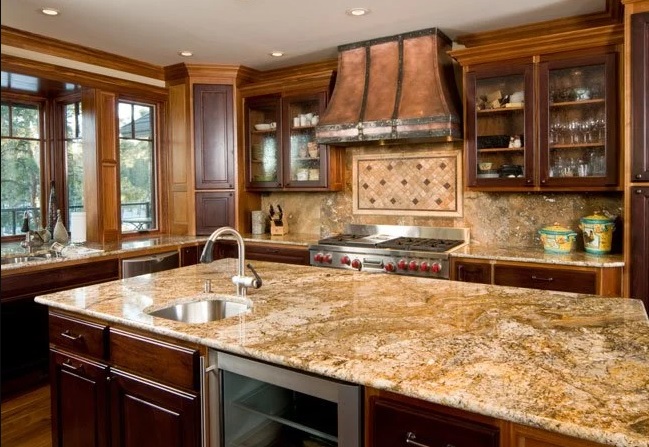
Granite is the second hardest natural material after diamond. It is one of the best options for Kitchen countertop material as it is enduring, easy to maintain, long-lasting, and elegant in its appearance. It is mostly scratch-proof to that extent that the sharpest knives even won’t create scratch on its surface.
Due to the heat-resistant property of granite, it does not blister; it chip or scratch. It’s much superior to laminate and marble when used in kitchen countertops. It looks excellent when polished. It gives a luminous, dimensional appearance.
Granite consists of mineral crystals which are interlocked; the most common are quartz and feldspar. The white mineral in granite is feldspar; the light grey is quartz; and the black is usually mica.
Granite is drilled, blasted, and chiselled from the quarries in large sized blocks with special milling tools and then cut into small workable slabs.
Special tools are required to make the raw granite piece into the kitchen countertops. Granite countertops can be custom-made and also built professionally but they are also available in pre-cut forms. The design of the kitchen, size and shape of the available pre-cut material and the placement of the seams can help decide whether you require pre-cut and edged granite or whether you need a custom-made.
Colours and Polish of Granite for Countertops
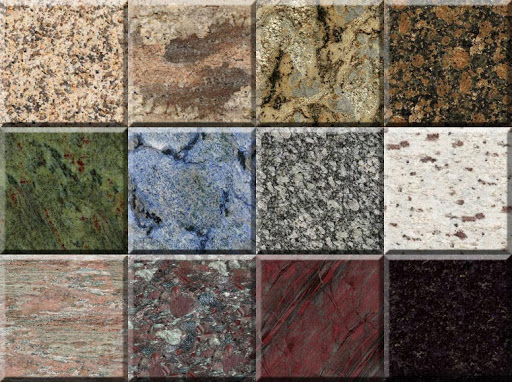
They are available in varieties of colours and patterns. You may found varieties of colours of granite including shades of grey, white, black, red, yellow, etc. Different types of finishes for granite countertops are found including, i.e. polished, honed, etc. Polished granite is more popular as it looks shiny and has a glossy finish. In the honed finish, the surface is smooth but not that shiny. The edge of the countertops may be straight, bevelled or rounded.
Selection and Installation of Granite for Kitchen Countertops
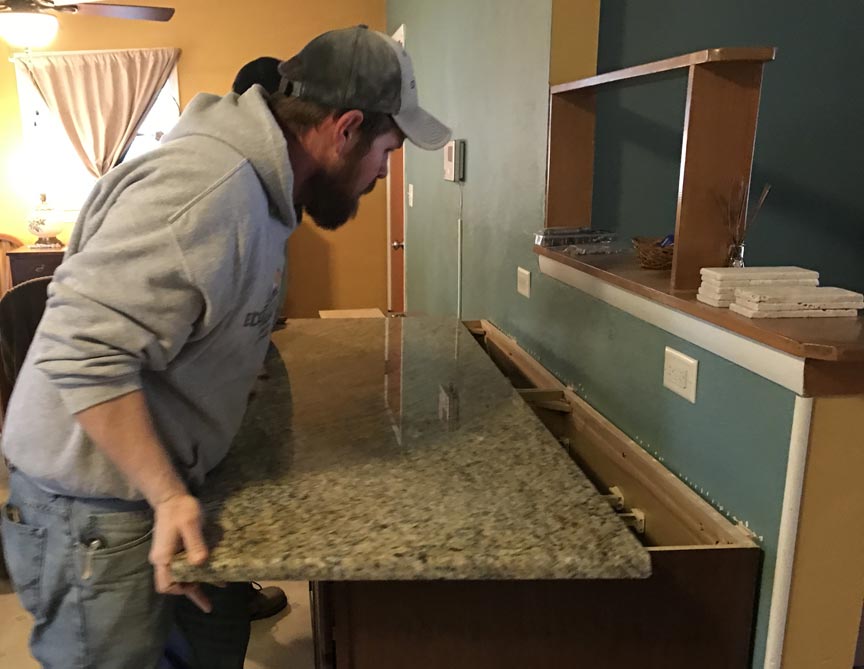
As natural granite stones are available in thousands of pattern and colours, it is naturally difficult to choose. However, keep your focus on the below mentioned points:
a) Inspect the granite slabs for cracks and scratches before you purchase and make sure that it is of good quality granite.Gharpedia has also written useful tips on granite slab buying guide for your kitchen countertops. Best Tips to Buy Granite Slabs for Kitchen Countertops
b) Slabs made from large blocks are usually 3/4-inch (20 mm) thick to 1 1/4-inch (30 mm) thick. The thicker granite slabs have more edge choices and don’t usually need a sub-top. The thinner granite slabs have to be placed over a concrete or plywood sub top of suitable thickness.
c) If your countertop is built with an overhang of 9 inches (23 cm) or more, you’ll need corbels to support it.
d) All granite slabs, which are used in kitchens, should have at least one seam. Seams should be made at the well-supported areas of the cabinetry wherever possible.
e) Since the thickness of two granite pieces may differ slightly, seams may be required to make sure that the tops are flushed.
f) The edges of the granite slab are made completely smoothed and designed with a maximum gap of 1/16 inch (1.5 mm) between them. These gaps are usually filled with pigmented, two-part polyester resin.
Size of Granite for Kitchen Countertops
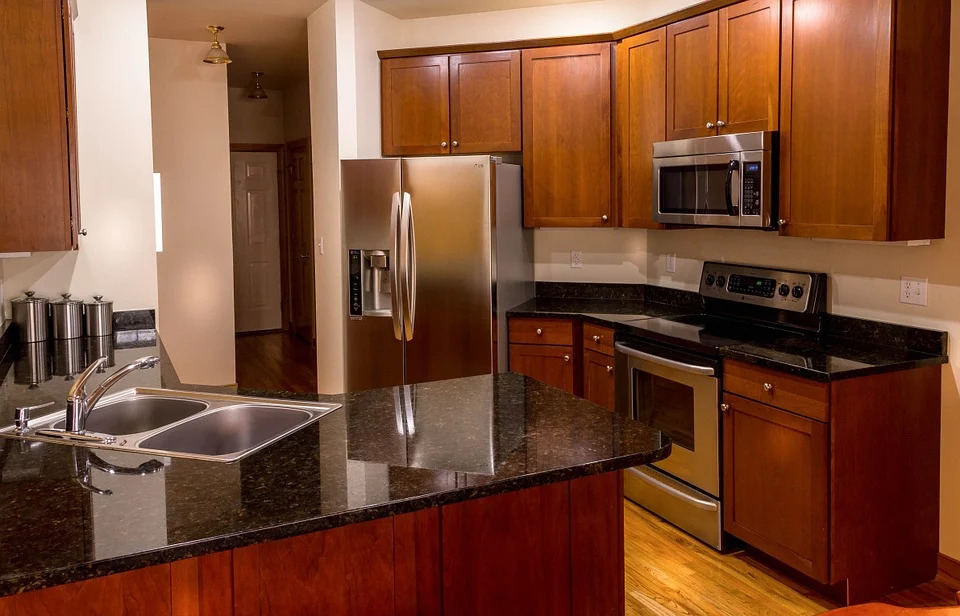
The size of a granite kitchen countertop depends on the size of kitchen platform and space allotted for the kitchen countertop. Granite slabs come in multiple varieties of shapes and sizes. If the length of countertops is more than the nominal length of the slab, it will require a seam or joint. Granite slabs size is normally about 1220mm x 610mm (4’x2′) to 2745mm x 1220mm (9’x4′). The thickness of a granite slab is usually between 18mm and 40mm depending upon its length and breadth i.e. area
Price of Granite Countertops
The granite countertops cost includes the cost of the granite slabs and labour cost for installation. Granite countertops must be installed by a skilled person. It costs approximately between Rs. 200 andRs.300/per sq.ft including the labour cost. (i.e. Rs. 2000 to Rs. 3000 / per sq. mt) but price and labour cost may vary slightly from one place to another.
Care and Maintenance
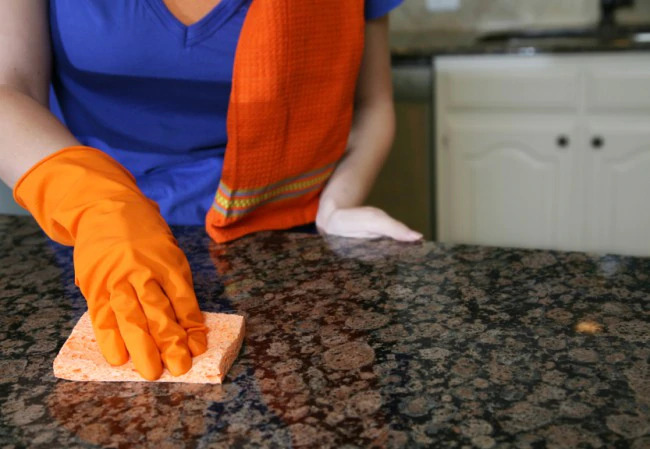
Granite requires minimal care to ensure that it stays in good condition, including stain removal, sealing and cleaning the granite surface.
- Wipe the countertops with the soft cloth and warm water daily.
- Mild household cleaners are suitable.
- Avoid using cleaning products with any kind of acid or abrasive as they may cause discolouration or scratches.
- Few granite slabs are more absorbent than others, and can develop stains if they are not sealed properly. Check with a few drops of lemon juice poured onto a small portion of granite. When you quickly see dark spots under the drops, the granite type is more absorbent than others, and might not be the best choice for kitchen countertops unless it is duly sealed.
- Many granite countertops manufactures will suggest sealing the granite slab initially and repeat the job of resealing in every five years. Though, certain granite types are so dense that they do not require to be sealed at all. The second option is a better choice for kitchen countertops.
Granite countertops are easy to clean. They resist scratches, heat, stain, etc. The disadvantages of granite kitchen countertops are that they are more expensive and require some maintenance i.e. needs annual sealing. Corners may chip or break if any heavy object drops on them.
If you want to know pros and cons of granite countertops in detail, keep reading further.
Apart from kitchen countertops, granite is used in various parts of your home. You would like to read.
Granite is one of the most popular countertop materials and it provides a spectacular look that many other countertop materials hardly can project. Granite is cleaning friendly and makes a durable work surface that mostly last a lifetime if it is regularly maintained. Like the both side of a coin, with all of the advantages of granite countertops, there are a few disadvantages of it, which you should consider before installing it in your home.
Here are the pros and cons of granite countertops:
Pros/Advantages of Granite Countertops
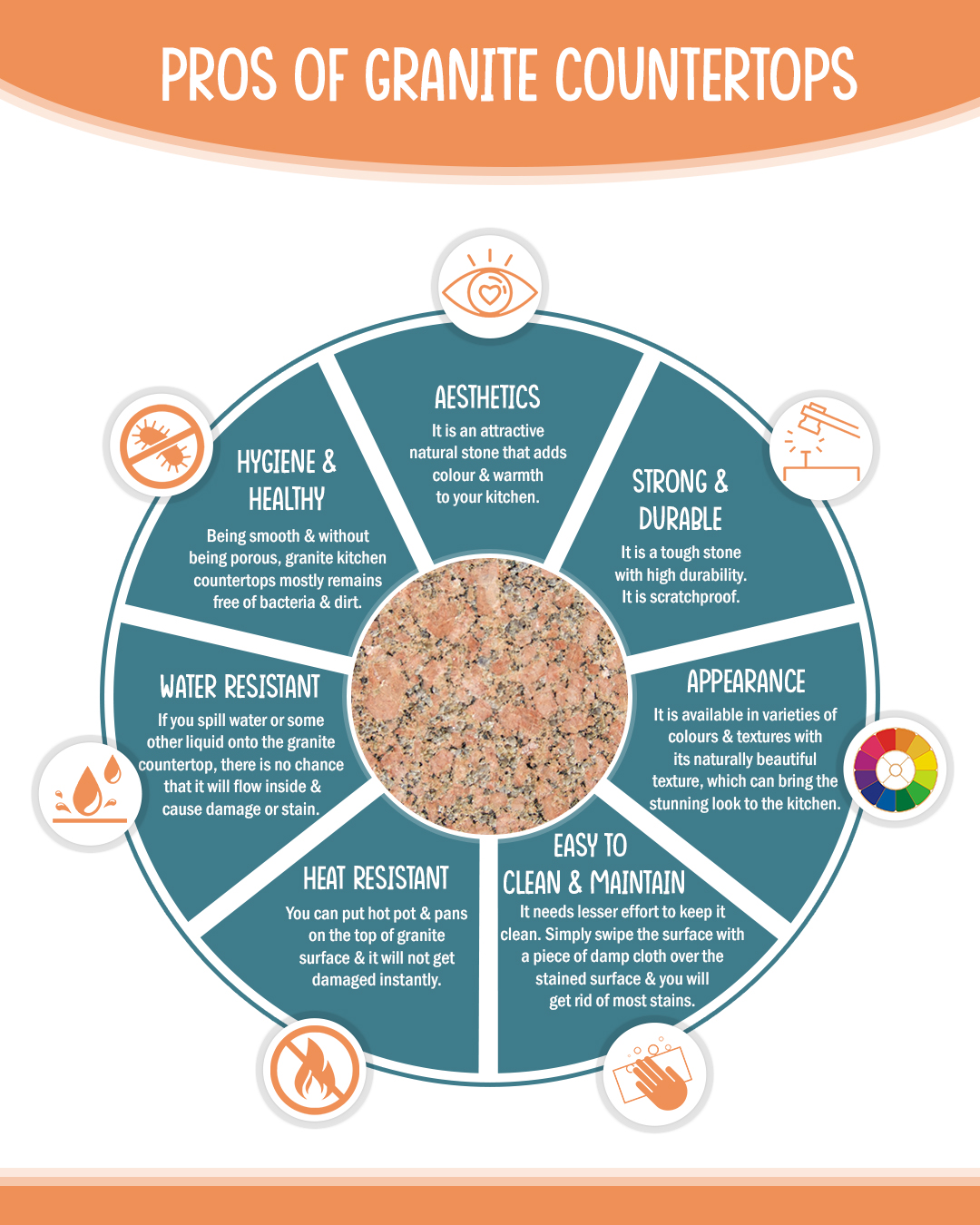
01. Aesthetics: Granite is an attractive natural stone that adds colour and warmth to your kitchen. Granite countertops are unique as no two granite pieces are exactly the same; thus granite offers a fascinating design feature and adds some richness and texture to your kitchen which is not found in other surfaces. It can produce a spend or and beauty that is found only in nature.
02. Strong and Durable: Granite is a tough stone with high durability. It is mostly scratch-proof. With proper installation and maintenance, it will last longer perhaps for your lifetime. Although it is not unbreakable, it will certainly last for decades if maintained at regular course.
03. Appearance: They are available in varieties of colours and textures with its naturally beautiful texture, which can bring the stunning look to the whole kitchen. Also for creating a stylish design, edges can be made in a variety of shapes i.e. Bullnose, Bevel, etc. Granite is one of the best countertop materials that match with all types of home décor.
04. Easy to Clean and Maintain: Granite needs lesser effort to keep it clean. You can simply swipe the surface with a piece of damp cloth over the stained surface and you will get rid of all the stains. Wiping with warm water using the soft towel while cooking, is more than enough to maintain its sheen and shine. Granite is not porous, so it doesn’t stick onto the stains.
05. Heat Resistant: Granite will easily bear the heat of almost anything that you can subject to it. You can put hot pot and pans on the top of it and it will not get damaged instantly.
06. Water Resistant: They are highly water resistant. If you spill water or some other liquid onto the countertop, there is no chance that it will flow inside and cause damage or stain. And if it’s been a couple of minutes you can easily clean the spill.
07. Hygiene and Healthy: Being smooth and without being porous, granite kitchen countertops mostly remains free of bacteria and dirt. Thus it is perhaps one of the most hygienic countertop you may rely.
Cons/Disadvantages of Granite Countertops
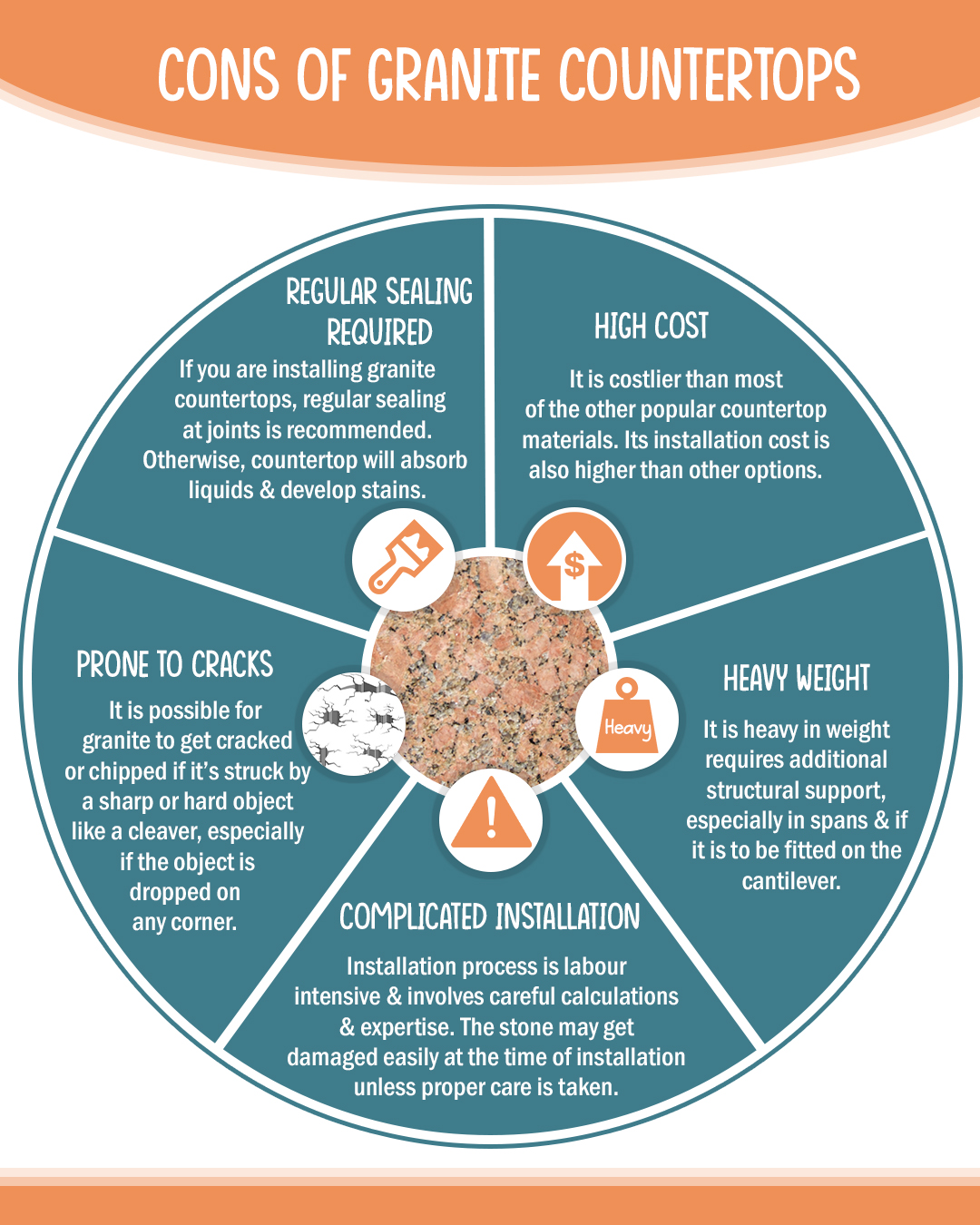
01. High Cost: Granite is expensive. It is costlier than most of the other popular countertop materials. The installation cost of granite countertops is also higher than other options.
02. Heavy Weight: It is heavy in weight. So, it requires additional structural support, especially in spans and if it is to be fitted on the cantilever.
03. Complicated Installation: The installation process requires the professional involvement of a skilled worker. The stone may get damaged easily at the time of installation unless proper care is taken, and you will have no option but to replace the damages slab. Whether you intend to import and install your granite countertops, or choose to do some or most of the work yourself, the process is labour intensive and involves careful calculations and expertise.
04. Prone to Cracks: It is possible for granite to get cracked or chipped if it’s struck by a sharp or hard object like a cleaver, especially if the object is dropped on any corner. Usually, it happens when the countertop is hit hard at its specific weak areas.
05. Regular Sealing Required: If you are installing granite countertops, regular sealing at joints is always recommended. Otherwise, chances are there that the countertop will absorb liquids and develop stains. In addition to being cumbersome, the regular sealing also involves hefty expenditure. Please keep it in mind that various granite pieces have varying porosities. Many countertop areas may need sealing more often than others. Dribble some water on the countertop to decide whether it’s time to reseal a countertop. When it continues to bead up, then it is fine. But if the water soaks in the granite, it’s the time for resealing the surface.
Conclusion
Thus with many pros and cons of granite countertops, it is up to you to decide if the visual appeal of granite is worth dealing with the disadvantages. You can discuss your concerns with your countertop provider and compare the value and durability of granite to other options at your disposal. You will probably find that there is no real life alternative to the beauty and durability of granite in an affordable price range.
To sum up, anyone who has coined the phrase “hard as a rock” might have thought of granite very well. Shaped from compressed molten rock beneath the surface of the Earth for millions of years, granite is incredibly hard and durable. Granite is stunning, long lasting, precious and affordable. So, it can be a wonderful experience to introduce such elements like granite countertops for your home. Granite countertops will definitely be a beautiful addition to your kitchen. The right granite stone not only adds value to your home, it also provides a special touch of elegance and beauty that can literally last for lifetime.
Keep in mind that granite countertop is an option. Ultimately the countertop you want should represent your personal taste. Take your time and make sure it fits well with your existing cabinets, and fits well with the overall design of your room décor be it in your kitchen or in your wash area.
From here you can read more about granite.


























